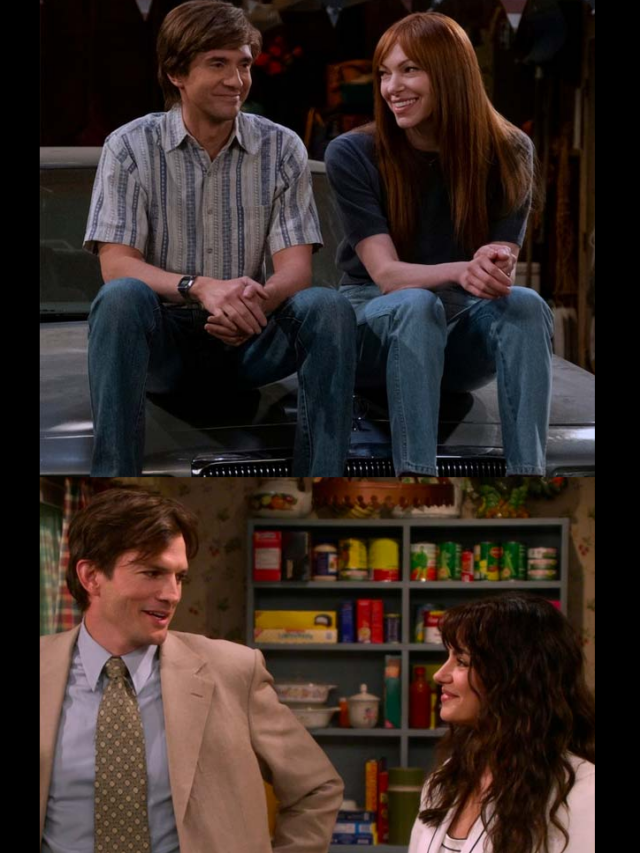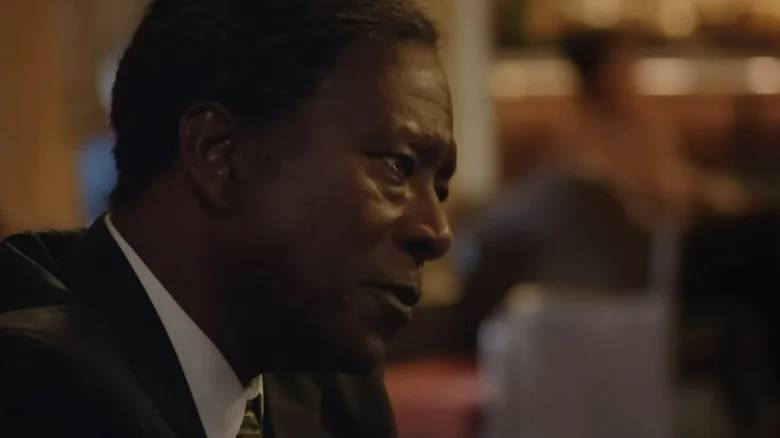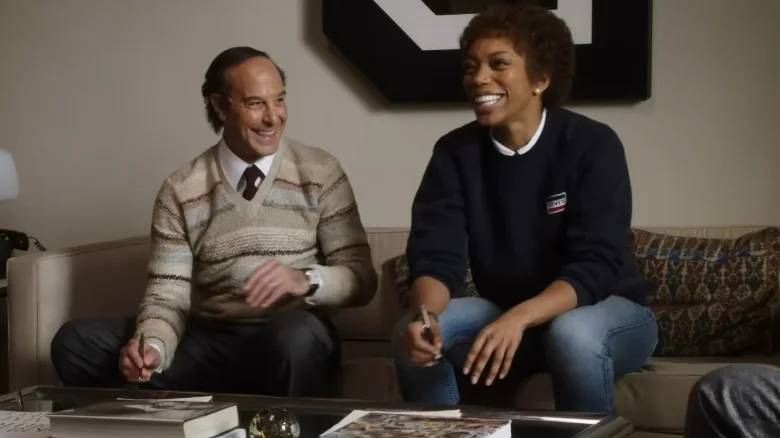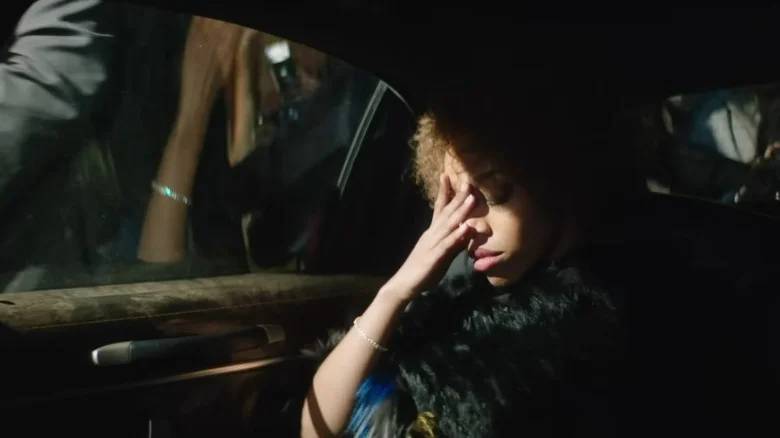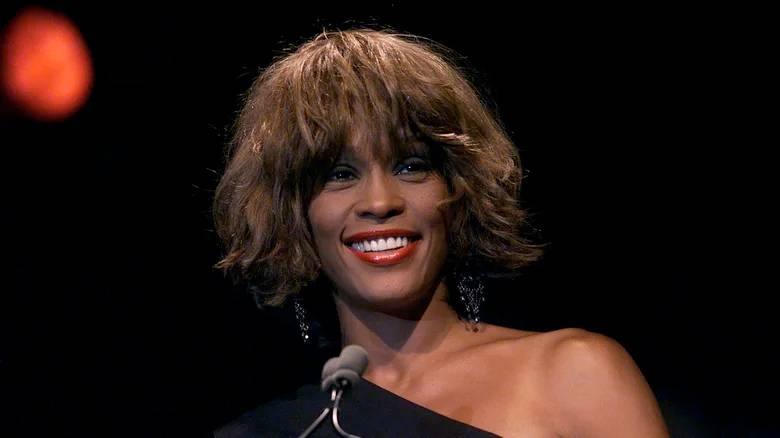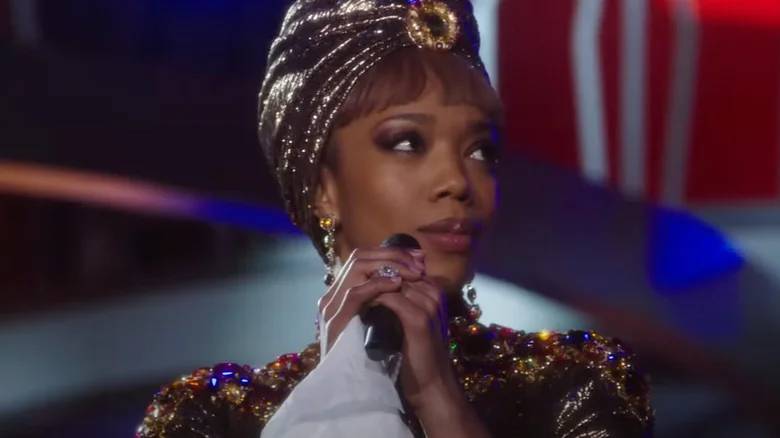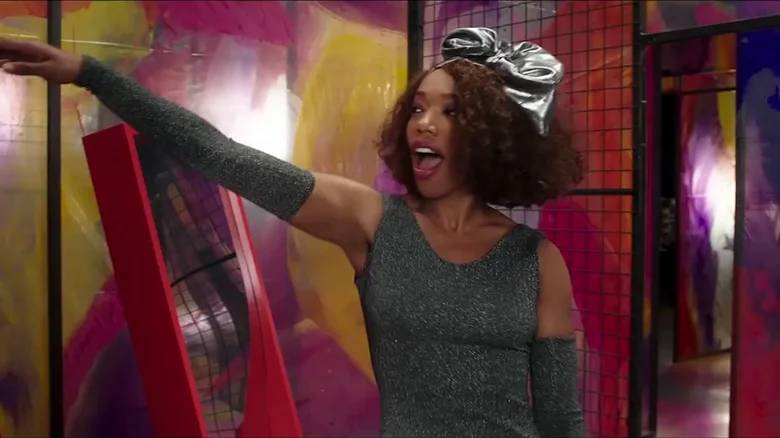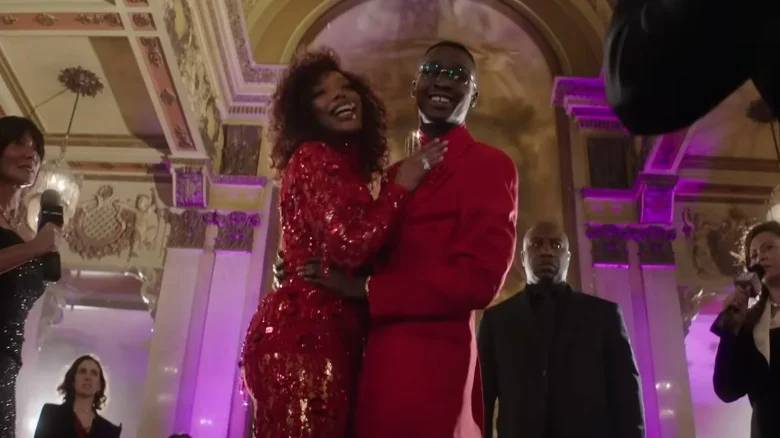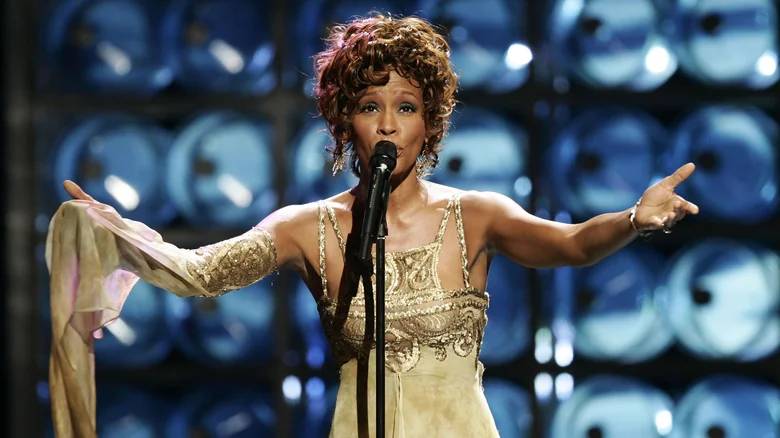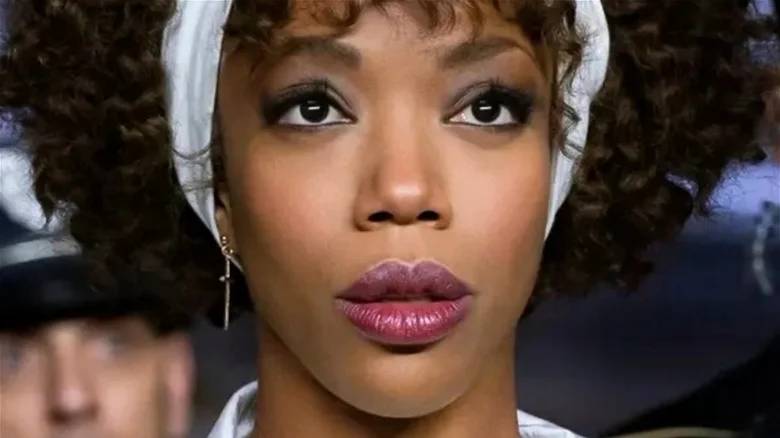
I Wanna Dance With Somebody (2022) Ending :Whitney’s Identity Crisis Explained
With the new biopic “I Wanna Dance with Somebody,” director Kasi Lemmons brings the songs, life, and incredible voice of the famous singer Whitney Houston to life. The movie explores the illustrious highs and heartbreaking lows of iconic singer Whitney Houston, who is portrayed by Naomi Ackie. The movie covers almost every aspect of Houston’s life in the public eye, from her early career working with record producer Clive Davis (Stanley Tucci) through her eventual engagement with R&B artist Bobby Brown (Ashton Sanders).
The song scenes used are both nostalgic and appropriate for the big screen, and Ackie’s portrayal of Houston captures the vigour and charisma that gave the singer such a strong stage presence. The movie, however, isn’t hesitant to address the less positive aspects of Houston’s personal life, such as her eventual drug addiction and her turbulent romantic relationships. The movie is most emotionally charged and has some very heartbreaking moments during Houston’s low points.
To fully grasp how the movie portrays Houston’s final years before her sad death in 2012, it’s important to look at everything that happened before those heartbreaking final seconds. As a result, we’ll examine all that was displayed throughout “I Wanna Dance with Somebody’s” dramatic climax.
Table Of Content
- 1 A challenging relationship with her father
- 2 A falling out with a friend
- 3 A helping hand
- 4 A secret supplier
- 5 A tragic end, but a prominent legacy
- 6 Harsh critics
- 7 Love lost
- 8 The origins of Whitney’s addiction
- 9 The performance of a lifetime
- 10 Whitney and Bobby
- 11 Whitney’s identity crisis
- 12 Does I Wanna Dance with Somebody add to the legacy of Whitney Houston?
A challenging relationship with her father
Similar to her marriage, Whitney’s relationship with her father John also suffers from dysfunction and comes to a depressing conclusion. Although John plays a significant role in Whitney’s upbringing because he mostly looks after her while her mother Cissy (Tamara Tunie) is on tour, their relationship swiftly deteriorates as he takes on the role of her manager. He rejects Whitney’s request to include Robyn in her career right away and expresses his contempt for Robyn. John also immediately begins stealing from Whitney’s funds by giving all of his assistants credit cards. Eventually, their abuse of those cards—and Whitney’s money—becomes so severe that Whitney almost loses everything.
Whitney’s father always pushes back when she tries to approach him about his actions, placing her in a difficult situation. Whitney struggles to truly cut him off even though she feels betrayed by him since she still loves him as her father. Whitney’s conflicted feelings toward him prevent much closure, which is what makes their final moment together in the hospital so painful. The situation is so horrible that Whitney decides against going to his burial and instead descends into a drug-fueled coma. Whitney still loves her father, but she finds it difficult to not hate him for his cunning ways and for trying to run her life.
A falling out with a friend
Whitney and Robyn establish a close bond early on in the movie, which later blossoms into something more. Their relationship feels indestructible because Robyn gives Whitney the encouragement and support she needs to stay true to herself. Even after their major argument, which is the result of Whitney sleeping with Jermaine Jackson (Jaison Hunter), their sincere bond keeps them together for many years. However, they encounter strong opposition, which finally results in a significant rift between them.
Whitney’s father strongly disapproves of their relationship from the beginning and even advises them to seek out love relationships with men in order to conceal their actual nature. Once Bobby enters the scene, he also works to remove Robyn from Whitney’s life and interferes with their bond at almost every opportunity. Robyn had grown tired of Whitney’s refusal to take control of her own life by the time her drug usage and demanding performance schedule have actually become a problem.
In the end, she makes the decision to keep her distance from Whitney, leaving the troubled singer without anybody to guide her toward a path of recovery. It’s heartbreaking to watch Whitney and Robyn’s friendship destroyed by outside forces because it was one of the warmest aspects of the early scenes of the movie.
A helping hand
Despite the fact that Whitney surrounds herself with a lot of toxic men, her producer Clive is happily not one of them. Whitney often finds that Clive is a real lifeline and one of the few people she can genuinely trust, despite his desire to keep their relationship entirely business. Whitney could consult Clive almost whenever she was having a mental breakdown and needed help returning to a more positive frame of mind. Even her most famous songs have been the consequence of her visits to Clive at times. As a result, Clive chooses to intervene when Whitney’s drug addiction starts to negatively impact her life.
Clive breaks his one client rule by confronting Whitney about her drug usage after inviting Whitney and her daughter to his place. Whitney sobs in this unexpectedly touching scene, while Clive displays his most personal behaviour to date.
It’s a brief but significant moment of intervention that demonstrates Whitney’s importance to Clive as a person, not simply as a customer, and how much she means to him. Whitney is someone who plainly means more to Clive than his customers, despite the fact that he claims to stay out of their personal affairs.
A secret supplier
You can’t help but wonder how Whitney is obtaining the narcotics that are destroying her life throughout the entire movie. She is after all frequently in the spotlight. The movie provides an answer to this query, and it’s somewhat unexpected, in a brief but notable moment.
Whitney is seen moving through a group of photographers and admirers early in the movie, but she only signs one fan’s notebook before getting into her limo.
You may be left wondering what the significance of this scene is when the camera lingers on the fan. When Whitney runs into the same admirer again later and signs their autograph once more, the true nature of their interaction is revealed.
It seems that this fan is a drug dealer who conceals drugs in Whitney’s pen. Then she leaves the cash in the notebook and steals the drugs. The revelation that Whitney relapsed and how she managed to keep her drug use largely under wraps is an intriguing one.
A tragic end, but a prominent legacy
Whitney’s renowned medley performance at the American Music Awards serves as the film’s triumphant epilogue, but it doesn’t entirely ignore the tragedy of her untimely death. The movie discusses Whitney’s sad death from drowning in her bathtub owing to an accidental drug overdose after she came to Los Angeles for the 2012 Grammy Awards using a few closing credit slates. Even though the added line about her passing away at the age of 48 comes immediately before the closing credits, the movie also honours the influence and legacy she left behind.
The movie briefly mentions Whitney’s numerous entertainment accomplishments, including being one of the most celebrated singers of all time, in a few more snappy words. Whitney holds records in the music industry that haven’t been surpassed and is still the best-selling Black artist of all time. She continues to inspire a new generation of musicians and was even given a posthumous entry into the Rock and Roll Hall of Fame. Whitney’s passing completely shook the world and left a gaping hole in the hearts of her followers all over the world, yet her legacy still has a great influence.
Harsh critics
Whitney has endured a lot of criticism throughout the course of her career for both her personal and business lives. Whitney receives criticism for not being “black enough” in some quarters when her songs begin to rise the charts and even win some awards. In addition, she is frequently called a sellout. She frequently dealt with rebukes at concerts and occasions where protesters yelled nasty names since the criticism of her race has gotten so harsh.
Whitney and Bobby are the subject of growing tabloid attention as their relationship gets more acrimonious. Whitney is frequently included whenever Bobby makes headlines for his “bad boy activities,” which makes them a contentious relationship in the public spotlight. The harsh criticism Whitney faces as her drug usage begins to interfere with her singing and finally threatens her signature vocal range is what stands out most, though.
Whitney’s comeback performance receives terrible reviews, which have an effect on her reputation at the moment and show how drug use has a detrimental effect on her career. Whitney Houston is still widely regarded as one of the best vocalists of all time, but that doesn’t mean she wasn’t not without her share of detractors, as the movie emphasises as it moves toward its terrible conclusion.
Love lost
It goes without saying that Whitney and Bobby’s marriage was everything from solid. It eventually takes some bad turns, as seen in the movie. Their relationship suffers greatly as a result of Bobby’s infidelity, and this mistrust persists throughout their union. While their relationship is never without its issues, with Bobby’s obviously domineering conduct at the core of most of them, there are nevertheless some sweet moments surrounding the birth of their daughter and Whitney’s ongoing success as a singer.
When Whitney’s drug abuse is at its worst, Bobby rarely provides any guidance toward rehabilitation and frequently creates further barriers. He significantly strains Whitney’s friendship with Robyn and contributes to her downward slide into drug abuse. Additionally, their arguments would occasionally come out as so violent that spectators couldn’t help but feel uneasy seeing them on film. As a result, when Whitney eventually makes the decision to enter rehab, she ultimately decides to break up with Bobby, giving her the opportunity for a truly new beginning.
Although Whitney and Bobby’s relationship was a huge part of pop culture, it was far from ideal and was a factor in some of the problems the singer ran into once she got famous.
The origins of Whitney’s addiction
Even though Whitney’s drug addiction gets worse over the course of her life, there are times when she starts using drugs as a form of escape. While she and Robyn (Nafessa Williams) are initially seen sometimes using marijuana, there are also later sequences that show Whitney using harder narcotics as a way to cope with her newly discovered pressures. Although it would be simple to assume that the demands of fame drive her drug usage, problems in her personal life appeared to have a greater impact on her drug use and abuse.
Whitney’s manager and father John (Clarke Peters) regularly causes more stress in her life by misusing her money and attempting to manipulate her image. He not only forces Whitney to portray a certain image of herself, but he also strains her friendship with Robyn by objecting to their socialising together. Beyond that, Whitney is continuously searching for an escape, or as she puts it, a vacation, due to her poisonous relationship with Bobby.
Whitney’s addiction keeps getting worse as social pressure mounts and as she loses control of her life.
The performance of a lifetime
Houston’s life was tragically ended by her death in 2012, but the movie opts to end on a more positive note. Instead of concentrating on her passing, the movie cuts to the 1994 American Music Awards, where Houston performed her iconic medley of “I Loves You, Porgy” from the 1935 opera “Porgy and Bess,” “And I Am Telling You I’m Not Going” from the 1981 Broadway production of “Dreamgirls,” and Houston’s own song “I Have Nothing.” It’s a stirring conclusion that establishes Houston as a singular talent and ends the story on a positive note. Why then does this performance cap off the movie?
The fact that Whitney was just reminded of this performance by a bartender played by upcoming director Elegance Bratton is, to start with, kind of apt. She also finds herself at a crucial turning point in her life. She is on the point of relapsing and is concerned that her reputation will be ruined because her voice range has changed.
As a result, it makes sense for Whitney to reflect on this occasion, and allowing the viewer to witness this complete performance fits nicely with the mood the film’s last seconds leave you in.
Whitney’s tragic demise is not fully conveyed in the movie’s conclusion, but it does portray the extraordinary talent and charisma she possessed, which is ultimately what most people remember her for.
Whitney and Bobby
The movie explores Whitney’s career’s highs and lows while also showing the beginning of her relationship with Bobby.
Whitney starts to look into relationships with males because her father doesn’t want her to publicly date Robyn. Eventually, she meets Bobby during an awards ceremony. Whitney feels tearful after interacting with some protesters outside the performance. Robyn and her family have given Whitney a lot of support, but she still feels emotionally exposed.
Whitney is greatly affected when Bobby turns around and tries to console her during the ceremony. They soon begin dating and go on to become the king and queen of R&B after she hands Bobby her business card with a special message on it. There’s something wonderful about seeing their initial contact on TV, even if their relationship would soon become engulfed by turmoil and result in separation. In all honesty, it’s hard to hold Whitney responsible for being moved by Bobby’s thoughtful act.
Whitney’s identity crisis
Whitney’s story might undoubtedly feel like a warning about losing oneself because so many of her choices regarding her appearance and way of life throughout the movie seem to be beyond her control. Whitney is literally put into a box from the very beginning of her career, which over time begins to erode who she is. She is compelled to conceal her relationship with Robyn and endures harsh criticism for her songs, which forces her to face the effects of her persona.
Whitney feels as like she has no control over her life, even after she marries Bobby. Her drug usage is exacerbated by her failure to regulate Bobby’s chaotic conduct. She starts to express in her performances how she feels entrapped by others. Whitney doesn’t really grasp how much her sense of self has vanished until she enters rehab and starts preparing for her special performance.
Unfortunately, Whitney gives in to the forces that have been causing her so much anguish over the years because it is too late. Whitney’s experience should serve as a lesson on how crucial it is to keep your individuality and self-control.
Does I Wanna Dance with Somebody add to the legacy of Whitney Houston?
In general, biopics add something fresh to the legacy of the people they are about, and “I Wanna Dance with Somebody” is no exception. However, many critics felt that rather than taking a comprehensive look at Houston’s life and legacy, the movie is more of a collection of her best songs. That being said, the movie nonetheless serves as a legitimate celebration of Houston’s immense contribution to the globe. Fans of her songs will find plenty of nostalgia in it, and Naomi Ackie does a fantastic job of capturing Houston’s demeanour and genuine love of music.
“I Wanna Dance with Somebody” is, at the very least, a terrific way for fans to reflect on the influence that Houston had on them and provides a musically entrancing emotional trip down memory lane. Although there is certainly room for discussion regarding the film’s portrayal of significant moments in Houston’s life and its potential lack of depth, the film at least contributes to Houston’s legacy by telling her story and showcasing her distinctive voice, which continues to be in a class by itself.
Being a binge-watcher himself, finding Content to write about comes naturally to Divesh. From Anime to Trending Netflix Series and Celebrity News, he covers every detail and always find the right sources for his research.

